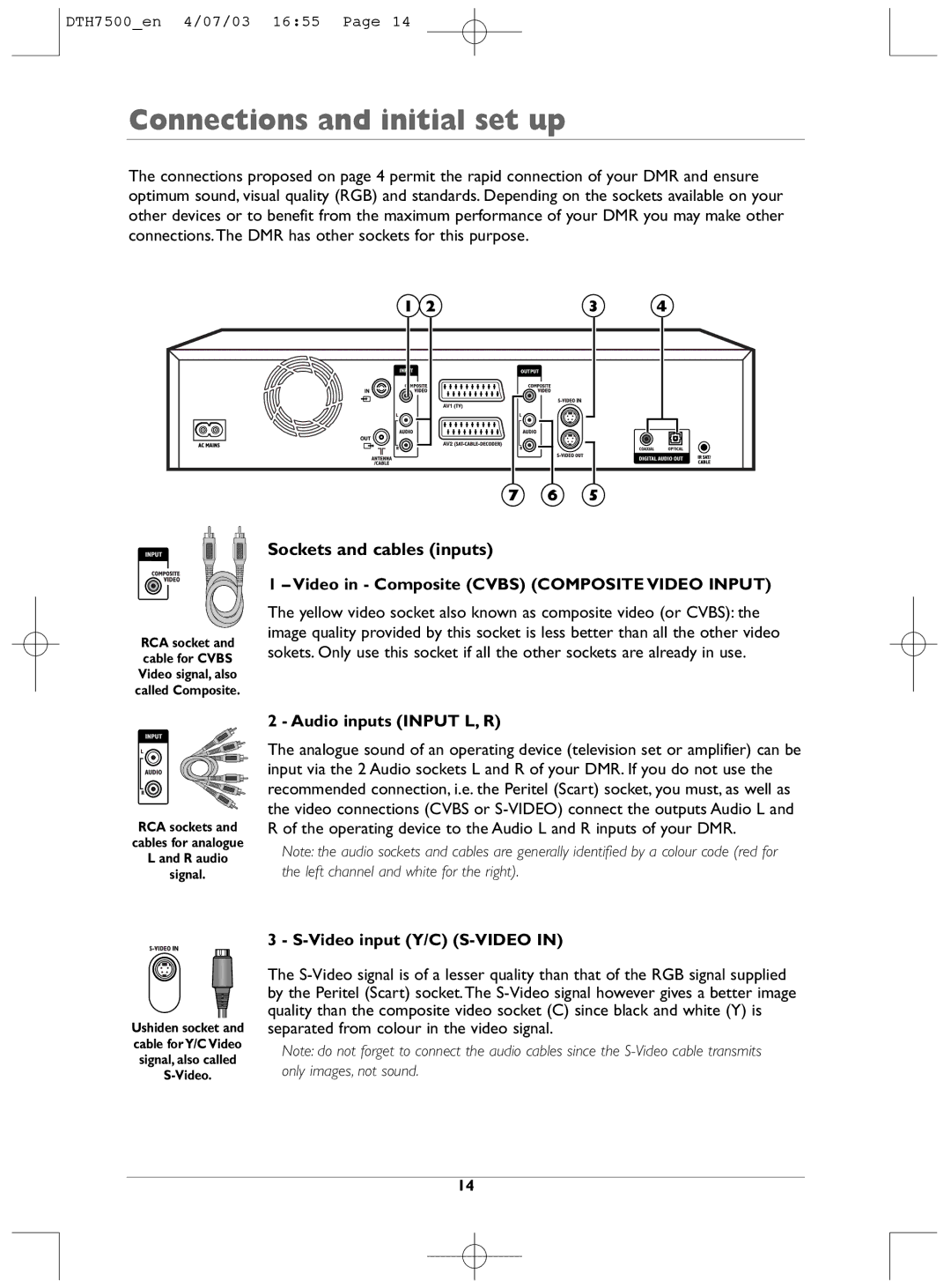
DTH7500_en 4/07/03 16:55 Page 14
Connections and initial set up
The connections proposed on page 4 permit the rapid connection of your DMR and ensure optimum sound, visual quality (RGB) and standards. Depending on the sockets available on your other devices or to benefit from the maximum performance of your DMR you may make other connections.The DMR has other sockets for this purpose.
1 | 2 |
| 3 | 4 |
| 7 | 6 | 5 |
|
RCA socket and cable for CVBS Video signal, also called Composite.
Sockets and cables (inputs)
1 – Video in - Composite (CVBS) (COMPOSITE VIDEO INPUT)
The yellow video socket also known as composite video (or CVBS): the image quality provided by this socket is less better than all the other video sokets. Only use this socket if all the other sockets are already in use.
RCA sockets and
cables for analogue
L and R audio
signal.
Ushiden socket and cable forY/C Video signal, also called
2 - Audio inputs (INPUT L, R)
The analogue sound of an operating device (television set or amplifier) can be input via the 2 Audio sockets L and R of your DMR. If you do not use the recommended connection, i.e. the Peritel (Scart) socket, you must, as well as the video connections (CVBS or
Note: the audio sockets and cables are generally identified by a colour code (red for the left channel and white for the right).
3 - S-Video input (Y/C) (S-VIDEO IN)
The
Note: do not forget to connect the audio cables since the
14
